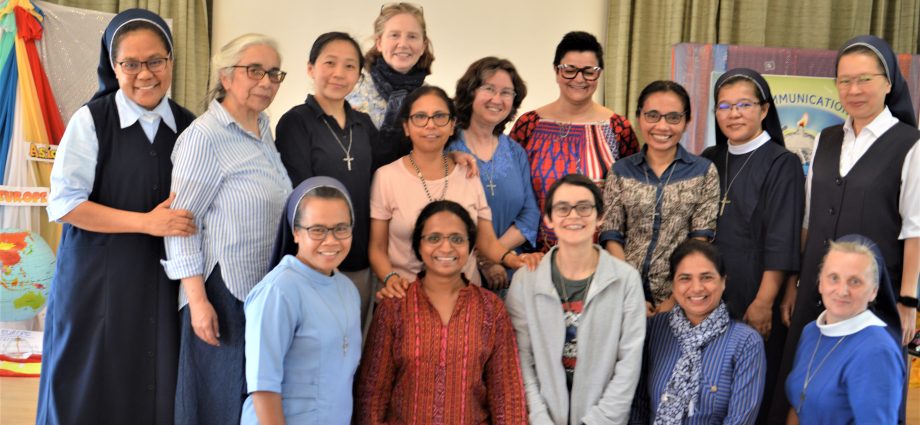By Tessy Jacob
Bhubaneswar, Dec 7, 2024: The Congregation of Missionary Sisters Servants of the Holy Spirit (SSpS), popularly known as the Holy Spirit Sisters, celebrates 135th anniversary of its foundation on December 8.
Founded in 1889 by German Father Arnold Janssen and two women aspirants, Helena Stollenwerk and Hendrina Stenmans, the congregation has branched out to 50 countries across continents.
The foundation was at the backdrop of the Kulturkampf in Germany. Although the civil and ecclesiastical condition of Germany was not favorable at that time, Father Janssen persisted in establishing three congregations – Society of the Divine Word (SVD), SSpS, and the perpetual adoration group of SSpS within two decades time.
His unwavering decision was commended as “either he is a fool or saint.”
Father Janssen was canonized in 2003, along with another Divine Word priest, Joseph Frindametz. His women associates were also beatified, recognizing their virtuous living and promoting missionaries, akin to Theresa of Child Jesus.
The primary reason for founding the women’s congregation was to avail the service of women wherever men could not gain access. The congregation holds the charism of moving according to the signs of time and has remarkably contributed to society in education, health care, pastoral, and social developmental activities, especially working among women and the peripheral groups.
The congregation took root in India in 1933, at Indore, Madhya Pradesh. On arrival in India, the sisters focused on the education of girls. The prestigious St. Raphel’s Girls School, Indore, witnesses to the congregation’s prophetic move in outdoing the patriarchal system of society.
Divided into four provinces spanning 18 states in India, the congregation holds internationality and interculturality as its identity. To cross the barriers in communication and cultural differences, they focus on integrated formation, emphasizing multicultural and multinational exposure. This method of formation is handy when the sisters are sent to any place in the globe.
The Holy Spirit sisters have made a name with their rural healthcare service. At a time when leprosy, tuberculosis, and malaria claimed the lives of rural folks, the sisters made a huge impact by managing small clinics and frequent health camps. Their service is still relevant in many underdeveloped areas in rural India.
The trend continued with giving residential education to the tribal girls, mainly in Madhya Pradesh, Odisha, and northeastern states. Developmental activities among tribal Christians have produced many vocations, who are now missionaries to other countries and parts of India.
When the Vatical II opened the ‘doors and windows’ of the Church, the Holy Spirit congregation was prompt in adapting to Indianization to merge with indigenous cultures. By culturally modifying their lifestyles and outfits, the sisters found easy acceptance among the common folks. Their service in east and central Indian states is remarkable, especially among the tribal and Dalit groups.
Moving with signs of Time, the sisters have ventured into many pioneering missions. The liturgical hymns series by Sister Pushpanjali, “Mangal Mekhla,” is a unique contribution of the congregation towards liturgy and Church hymns. St. John’s Medical College, Bangalore, had a Holy Spirit nun as its pioneering director.
While focusing on human development, the congregation has placed equal importance on the care of Mother Earth. As a founding member of VIVAT International, an international NGO for the care of human dignity and ecological conservation, the congregation etches its contribution broadly.
Although the founding generation wished to go to their dream- mission lands, they never went out of the small town where the congregation took root. Their ardent desire is fulfilled through their followers, who venture into territories for the service of humanity, even if the situation is adverse.
In the past 135 years, the congregation witnessed two World Wars that saw most European sisters dislocated permanently to other countries and never returned to their folds.
In India, the Holy Spirit nuns have become “Dids” and “Majis” (elder sisters or mothers). Their broadmindedness has impacted the growth and expansion of the congregation’s mission in India as well as globally.











